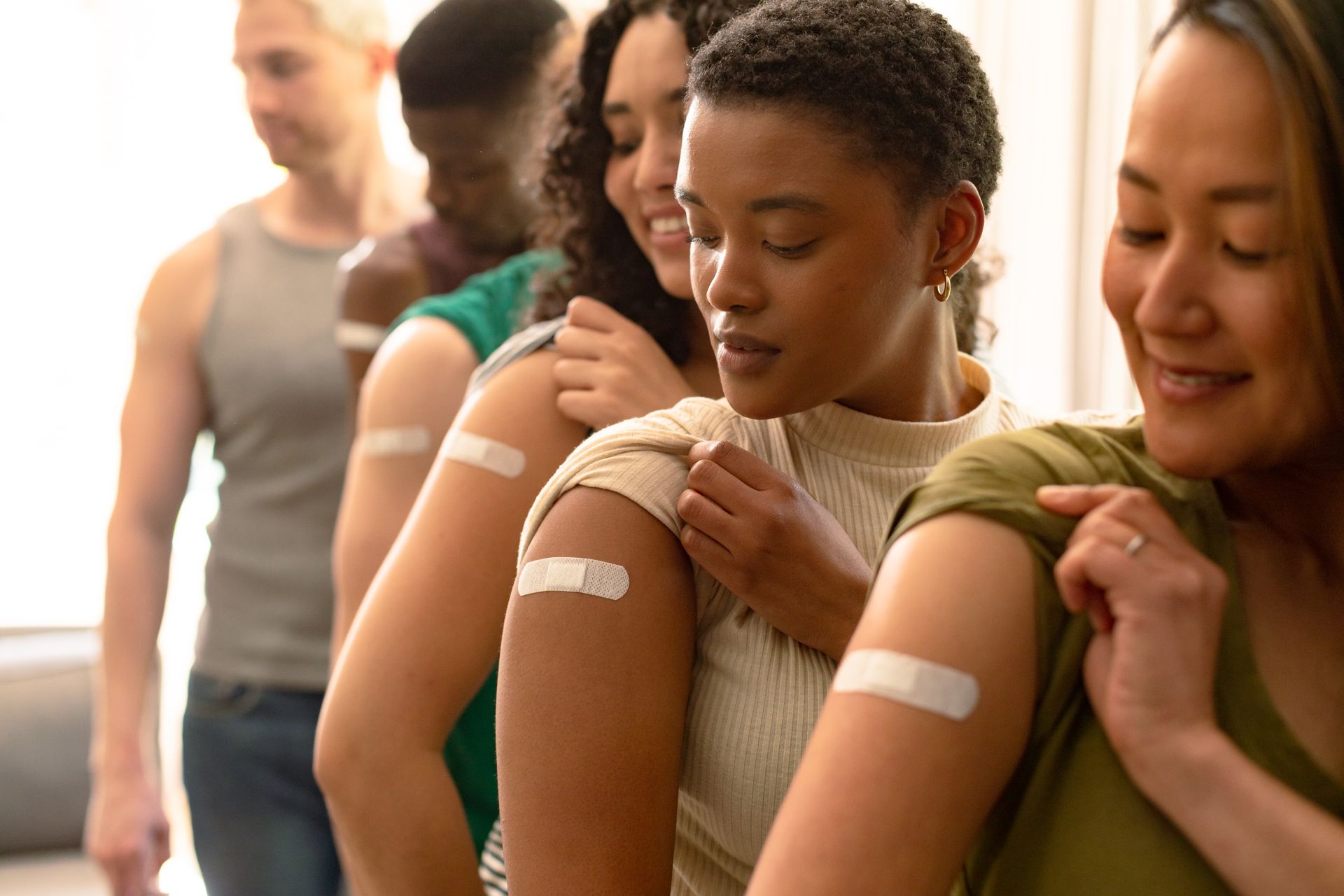The Importance of Vaccinations

Despite what some people would have you believe, the verifiable stats pertaining to the drop in formerly widespread and fatal illnesses clearly demonstrates the efficacy and importance of vaccines. They save lives and are an easy and important way to protect yourself, your family and your community.
An estimated four million deaths are averted worldwide thanks to childhood vaccinations every year. By 2030 the measles vaccine could save as many as 19 million lives, while the Hepatitis B vaccine could save 14 million lives.
In the U.S. alone, COVID-19 vaccines are estimated to have prevented an estimated 18.5 million hospitalizations and 3.2 million unnecessary deaths between December 2020 and November 2022. On a global scale, the vaccine is estimated to have reduced potential global deaths by approximately two-thirds in its first year, preventing 19.8 million of 31.4 million potential deaths. Some studies have suggested the U.S. would have had almost 120 million more COVID-19 cases were it not for widespread vaccine adoption rates.
While vaccines can have risks, and certain vaccines might not be right for people with certain allergies or conditions, the COVID-19 vaccines have proved to be largely safe. Of the nearly 240 million COVID-19 vaccine doses administered in the U.S. there were 141,208 recipients who reported side effects. The frequency of side effects per vaccine were:
- Pfizer-BioNTech: 0.04 percent
- Moderna: 0.06 percent
- Johnson & Johnson: 0.35 percent
The most common side effects by far were injection site pain, fatigue, muscle pain and headaches. Although vaccines, like all pharmaceuticals and medical treatments, are not entirely risk free, the COVID-19 vaccine is just one more data point in a long line of examples clearly demonstrating the benefits far outweigh the risks.
Unfortunately, the seemingly endless stream of misinformation has led to a marked increase in vaccine hesitancy. There was a global decrease in childhood immunizations in 2021, with 25 million newborns not receiving basic routine immunizations (six million more than 2019). The 18 million “zero-dose” children (those who received no vaccines at all after birth) represents the highest number since 2005.
The Science Behind Vaccines
At its core, a vaccine is akin to a training program for your immune system. Imagine your body as an elite athlete preparing for the grandest event of all – the fight against diseases. The athlete needs to know their opponents to strategize and win. This is exactly how most vaccines offer protection to recipients. A healthy person’s immune system only requires a tiny, inert part of a virus to recognize it and start building antibodies to fight off the real thing if it is encountered in the future.
The Societal Benefits of Vaccines
Reduced Healthcare Costs: Vaccines drastically reduce the number of hospitalizations and treatments needed to provide life-saving care to people who catch serious or deadly illnesses, reducing national healthcare expenses by billions of dollars. This has a positive effect on both private health care costs and government spending. It's like buying insurance for your car – a small investment now can prevent large out-of-pocket repair costs in the future.
Promoting Social Stability: Diseases can disrupt social fabrics, from closing schools to halting businesses. By mitigating disease spread, vaccines ensure societal stability and growth.
Herd Immunity: When more people get vaccinated, there's less spread of disease. It’s similar to an umbrella in a rainstorm. The more umbrellas there are, the fewer people get wet – including those who aren’t holding an umbrella. This phenomenon is called herd immunity, which protects those who can't get vaccinated, like infants or individuals with allergies.
Addressing Vaccine Hesitancy
One of the most damaging events to happen to modern medicine, and global health, were the two critically flawed studies linking vaccines to autism. The studies are still cited by conspiracy theorists today, even after being officially retracted. One of the studies’ authors even had their medical license revoked due to falsified information.
More than 25 articles published in medical journals have refuted the link between MMR vaccines and autism, as well as exhaustive analysis of medical records searching for any link between autism risk and MMR vaccines.
Being fully transparent with the public is one thing doctors and vaccine manufacturers can do to combat vaccine misinformation. Attempting to convince consumers to take vaccines by downplaying risks or overpromising results is a recipe for engendering mistrust in the future.
Medical providers and experts should trust that people equipped with accurate information are rational and responsible decision makers who will do what’s in the best interest of themselves and their families.
St. Hope Can Be Part of the Vaccine Solution
Every pharmacist and team member at St. Hope’s six Houston-area pharmacies are proud to help members of our community receive their necessary vaccinations. We believe in honesty, transparency and the safety of our patients and their families.
Please don’t hesitate to contact us to schedule vaccinations or to learn more about our immunization services.


